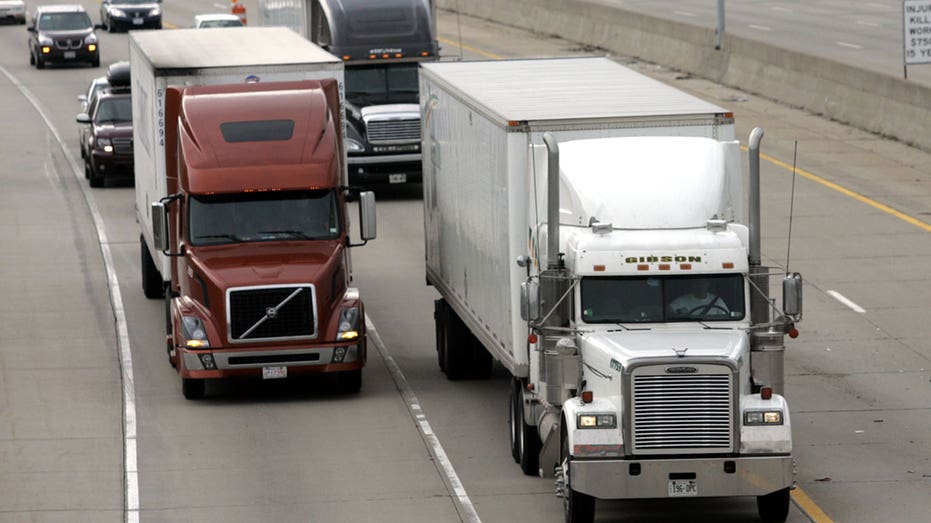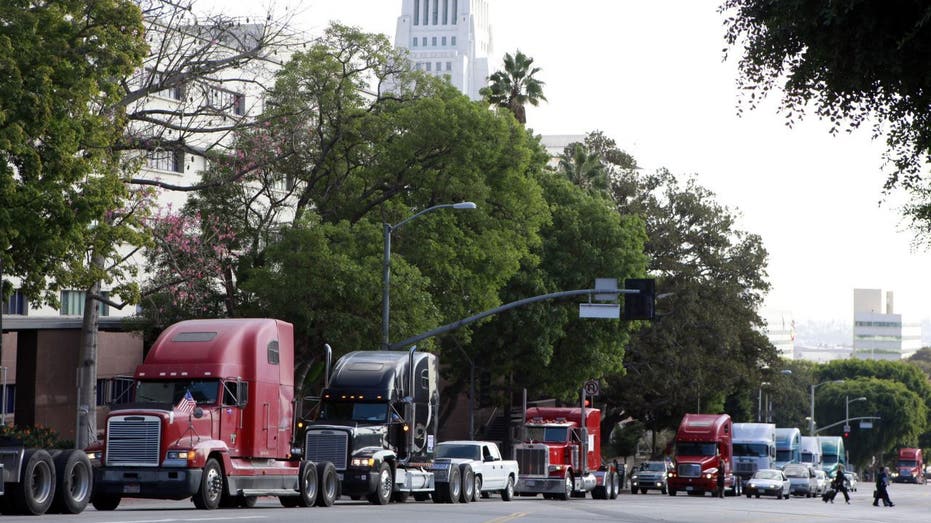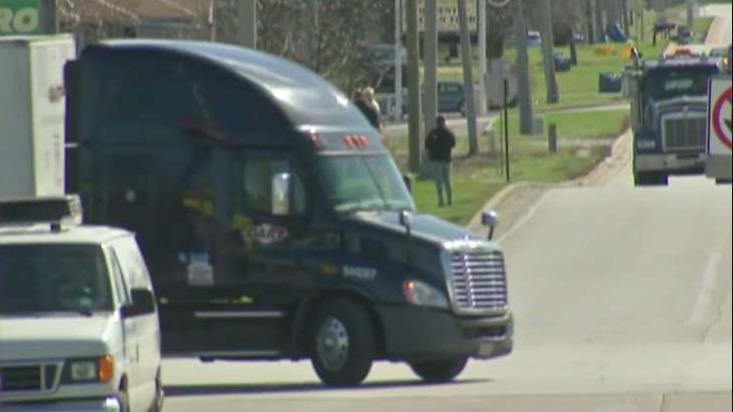California gig economy law to strip truck drivers of highest-paying industry jobs
Some drivers may be forced to leave the state, experts say
A California law scheduled to take effect in January will reclassify many independent contractors as employees, and that could strip truck drivers in the state of some of their best-paying opportunities, experts warn.
The sweeping law is intended to prevent workers from being wrongly classified as independent contractors, and deprived of basic labor protections as a result. It has, however, led to disastrous consequences in some cases.
The California Trucking Association filed a lawsuit to prevent the measure from being implemented earlier this month because the law would seriously restrict the activities of independent owner-operators.
An owner-operator is someone who essentially runs a trucking business. They provide and maintain their own trucks, pay for their own fuel and often have their own drivers. Those features allow them to take home a larger chunk of pay, by percentage of the haul. They often also make their own schedules, enjoying more freedom and flexibility.
TRUCKERS SUE CALIFORNIA, SAY NEW GIG ECONOMY LAW WOULD KILL 70,000 JOBS

Reuters
And owner-operators are beneficial to a business because the company can cut down on capital expenditures, like the cost of purchasing more trucks.
Their vehicles typically carry a company’s logo and Department of Transportation number, so it's not easy for the public to discern which drivers are owner-operators.
Company drivers are treated as typical employees, and they're often paid by the mile.
Many companies rely on both owner-operators and employee drivers, in an environment where experts continually say it is difficult to find good drivers. As previously reported by FOX Business, the industry could be short 174,000 drivers by 2026.
UBER, LYFT, DOORDASH LAUNCH $90M COUNTERATTACK AGAINST GIG ECONOMY LAW
Brian Fielkow, president of multimillion-dollar trucking and logistics company Jetco Delivery, said the upside to being an owner-operator is "tremendous."

FILE - In this Friday, Nov. 13, 2009 file photo a caravan of trucks from the ports of Los Angeles and Long Beach, Calif., drive around Los Angeles City Hall during a protest against container fees being assessed against independent truckers. (AP Phot
“For people who can manage it ... it’s a very, very good living and it’s a preferred way of life,” Fielkow said. The California law "will definitely discourage people from achieving what can be the best paying job for a professional driver, or group of drivers, in the industry ... You’re really hurting and preventing a large group of independent business people from succeeding and achieving the American dream.”
According to job search website Indeed, the average annual salary for an owner-operator driver is $222,608. The median salary for a truck driver is $43,680 per year, according to the Bureau of Labor Statistics.
GET FOX BUSINESS ON THE GO BY CLICKING HERE
Fielkow’s company is mixed, about 70 percent company drivers and 30 percent owner-operators. Many drivers, he noted, start out as employee drivers, but then transition into an owner-operator role as they grow their careers by investing in a truck, or fleet of trucks.
However, the new law essentially makes it impossible for owner-operators to continue business as usual.
Some companies are already taking preemptive measures to fend off fallout from the law. Landstar – the largest lease-contracting entity of owner-operators in the U.S. – recently issued a note to its hundreds of California operators cautioning them that they would need to make their own “informed business decision with respect to” how they want to react to the law.
They are essentially left with three options, Fielkow noted, either leave California to drive elsewhere, become employee drivers or abandon the industry altogether.
“Other companies are following suit, so it’s seismic,” he said.
CLICK HERE TO READ MORE ON FOX BUSINESS
The other option would be to get insurance and operating authority, which can be very difficult, especially for small businesses.
Donald Broughton, principal and managing partner of data firm Broughton Capital, said California has been steadily making it more difficult to do business by increasing regulations, which has put a particular strain on industries that rely on interstate commerce, like trucking.
“To the extent the gig economy-contractor law makes it more difficult or more expensive to operate a truck in California, it may drive up the cost of all the things that the residents of the state consume even further,” Broughton said.
Under the new law, in order for a company to treat a worker as a contractor it must prove that the worker is independent and able to perform services free of company control, that the services the worker provides are not part of the company’s typical course of business and that the person separately works in the same type of business outside of the contracted work.
That would require it to offer drivers hourly wages and other benefits. If workers are required to stick to schedules and work for only one company, it could eliminate gig economy opportunities.
The California Trucking Association filed a lawsuit against the state last week, alleging it would put 70,000 owner-operators out of work.
Broughton, however, said "it is hard to kill a trucker."
"Even the smallest are savvy, accustomed to surviving in a highly cyclical business, and operate assets which, in the worst-case scenario, can just be moved or operated in the 47 states, other than California," he said.
The law is intended to promote fair pay for gig economy workers, and to give them basic labor rights. But Fielkow said owner-operators would tell you the exact opposite.
Ride-sharing services, including Uber, Lyft and DoorDash, have also voiced their opposition to the measure – which stands to put their entire business models in jeopardy.





















